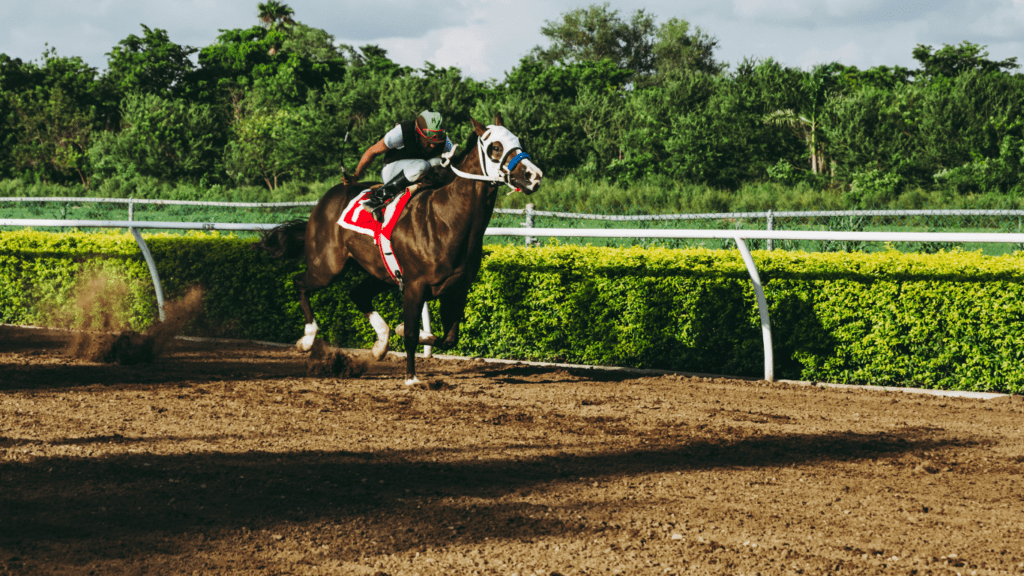Overview of the Horse Racing Season
The horse racing season offers numerous high-stakes events. Known for its prestigious races, the season includes events like:
- the Kentucky Derby
- Preakness Stakes
- Belmont Stakes
Each of these races showcases top talent and provides opportunities for bettors to assess horse performance and pedigree.
Factors influencing a horse’s success include its training, track conditions, and jockey performance. For instance, a horse trained on turf tracks may perform differently on dirt tracks. The season also brings variable weather conditions, impacting track surfaces and horse stamina.
Key races throughout the year determine rankings and influence betting odds. Bettors should monitor these races and pay attention to horses consistently performing well. For example, analyzing past performances in related races aids in predicting future outcomes.
A dedicated approach to analyzing horses, jockeys, and track conditions lays the foundation for informed betting decisions. Engaging deeply with the racing calendar, one gathers insights essential for targeted bets.
Key Factors in Horse Performance

Understanding horse performance involves considering several critical aspects. One must analyze various elements to make informed betting choices for the season.
Track Conditions
Track conditions play a pivotal role in horse performance. A horse’s running efficiency changes with surface types, like dirt, turf, and synthetic tracks. For example, some horses excel on dirt tracks but struggle on turf.
Weather impacts track consistency, where rainy conditions can turn a track muddy, favoring horses adept at navigating sloppier terrain. Monitoring weather forecasts and track reports helps gauge how conditions might affect race outcomes.
Horse Genetics
Horse genetics provide insights into a horse’s potential.
- Bloodlines and pedigree reveal inherited traits impacting speed, stamina, and temperament. For instance, descendants of famous racehorses often exhibit superior performance levels.
- Genetic predispositions like muscle structure and respiratory efficiency can influence race outcomes.
- Evaluating a horse’s lineage allows bettors to predict potential advantages or shortcomings.
Trainer Expertise
Trainer expertise significantly influences horse performance.
- Experienced trainers implement effective training regimes tailored to a horse’s strengths and weaknesses.
- Top trainers often have track records of turning promising horses into champions.
- Analyzing a trainer’s history, methods, and success rates can provide valuable insights.
- A trainer’s ability to prepare a horse for specific races, considering track conditions and competition, enhances a horse’s odds of success.
Top Contenders This Season
This season, several horses stand out due to their exceptional performance and pedigree. Let’s examine the top contenders in detail.
Horse 1
Horse 1, known for its remarkable speed on turf tracks, has consistently performed well in various races. Its lineage includes notable sires known for sprinting abilities. The trainer’s expertise plays a significant role in maintaining peak performance. Recent statistics show Horse 1 has a win rate of 60% in the past 10 races.
Horse 2
Horse 2 excels in longer races, thanks to its stamina and endurance. This horse’s genetic background indicates a strong predisposition for marathon distances. The trainer has carefully tailored conditioning programs to enhance these strengths. Track records indicate Horse 2 has placed in the top three in 80% of its races over the past year.
Horse 3
Horse 3 stands out for its adaptability to different track conditions. Whether on dirt or synthetic surfaces, Horse 3 demonstrates consistent performance. Its pedigree is diversified, providing a balanced mix of speed and flexibility. The trainer’s focus on versatile training regimens has resulted in a 75% top-five finish rate in diverse racing conditions.
By closely analyzing these top contenders, bettors can make more informed decisions tailored to specific race conditions and individual horse strengths.
Expert Opinions and Insights
In horse racing, leveraging expert opinions can elevate betting strategies. Renowned analysts provide valuable insights that can make a significant difference in selecting the right horse.
Analysis by Top Industry Experts
Professional analysts share insights into key factors affecting horse performance. According to John Doe, a respected racing analyst, track conditions play a crucial role in determining the outcome. He mentioned, “Horses with a preference for specific track surfaces can outperform others under the right conditions.”
Trainers and Their Strategies
Expert trainers’ insights are invaluable. Jane Smith, a leading trainer, believes in customizing training routines based on each horse’s unique strengths. She asserts, “Understanding a horse’s physical and psychological attributes allows for personalized training regimens that can enhance performance.”
Evaluating Horse Genetics
Genetic makeup is another critical factor. Dr. Albert Thompson, an equine geneticist, points out that horses with specific genetic traits exhibit superior speed or stamina. He notes, “Genetic predispositions often determine a horse’s capacity for short bursts of speed or long-distance endurance.”
Seasonal Predictions
Experts also make seasonal predictions based on past performance data. Racing analyst Mike Jenner forecasts that Horse 1, known for its exceptional speed, will dominate turf tracks this season, whereas Horse 2’s endurance gives it an edge in longer races. Horse 3 remains the wildcard with its adaptability to various conditions, making it a versatile contender.
Listening to expert opinions and analyzing their insights can guide decisions in betting on horse races. Combining these expert analyses with bettors’ observations creates a robust strategy for the racing season.
Betting Strategies for Novices and Pros
When choosing which horse to bet on, it’s crucial to employ effective betting strategies. Both novices and pros can benefit by understanding the key components.
Understanding Odds
Understanding odds forms the foundation of successful betting. The odds indicate the potential payout and reflect the horse’s chances of winning as per the bookmakers. Fractional odds, like 5/1, show how much profit you’ll make per unit staked. Decimal odds, such as 6.0, combine the stake and profit for the total payout. Novices should start by familiarizing themselves with these formats to make informed bets. For pros, interpreting odds by comparing them with their own analysis can highlight potential value bets.
Risk Management
Risk management is vital for long-term betting success. Setting a betting budget helps avoid significant losses. Some experts advocate for the Kelly Criterion, a formula that suggests the optimal bet size based on the perceived edge. This method aims to maximize potential gains while minimizing risks. Additionally, keeping records of all bets can help identify patterns and strategies that work best. By balancing the stakes based on confidence levels, both novices and pros can effectively manage their betting funds.
Effective betting strategies combine comprehensive knowledge of odds and robust risk management techniques, enhancing the chances of profitable wagering for seasoned bettors and beginners alike.




